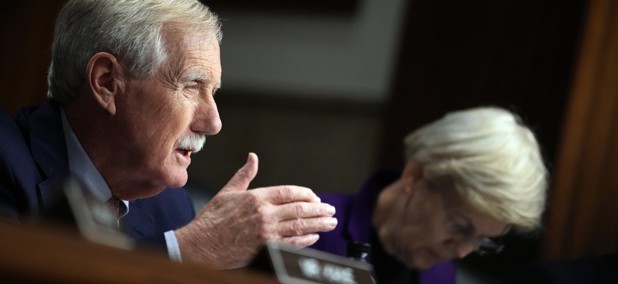Two U.S. senators expressed significant concerns on October 31, 2023, regarding a newly implemented policy by the Pentagon that may restrict communication between defense personnel and Congress. The memo, signed by Defense Secretary Pete Hegseth, has raised alarms among lawmakers who believe it could hinder essential dialogue between military leaders and elected representatives.
During a Senate Armed Services Committee hearing aimed at considering nominees for key positions within the Defense Department, Sen. Angus King, Independent from Maine and the committee’s ranking member on the strategic forces panel, voiced his apprehensions. He described the October 15 memo as a measure that could “throttle” communication between the Pentagon and Congress. King stated, “I’m concerned about the October 15 memo from the secretary, which basically throttles communication between people working at the Pentagon and Congress, including this committee.”
King highlighted the importance of direct communication, especially given that many witnesses at the hearing referenced meetings in congressional offices to discuss policy matters. He warned that such interactions could be prohibited under the new directive. “I think we need to discuss this,” he added, underscoring the critical nature of open lines of communication.
Echoing King’s concerns, Sen. Roger Wicker, Republican from Mississippi and chairman of the committee, acknowledged that the memo may have been misconstrued and suggested that it might need clarification. He expressed gratitude to King for raising the issue, indicating bipartisan unease regarding the implications of the policy.
The memo, initially reported by Breaking Defense, stipulates that all communications between Department of Defense (DOD) officials and Congress must be channeled through the Pentagon’s central legislative affairs office. It warns that “unauthorized engagements” with lawmakers could jeopardize the department’s legislative priorities and escalate tensions between the Pentagon and Capitol Hill.
Lawmakers from both parties have criticized the policy change, arguing that it could obstruct the Pentagon’s ability to achieve its legislative goals. Sen. Thom Tillis, a Republican from North Carolina, emphasized the need to trust the military’s chain of command. “This is too large of an organization to have that kind of a tight clamp on it, particularly when we have members [of Congress] that want specific answers, not going through protocol,” Tillis remarked during a recent interview with NBC News.
He further noted that restricting communication could undermine trust within the DOD. “This sort of closing the discussion to the press, limiting how many people connect independently in their capacities, very senior capacities in the DOD, just doesn’t make sense to me,” Tillis added.
As lawmakers continue to debate the implications of this policy change, the future of communication between the Pentagon and Congress remains uncertain. The growing concerns highlight a critical moment in the relationship between military leadership and legislative oversight, with potential ramifications for national security and defense policy.







